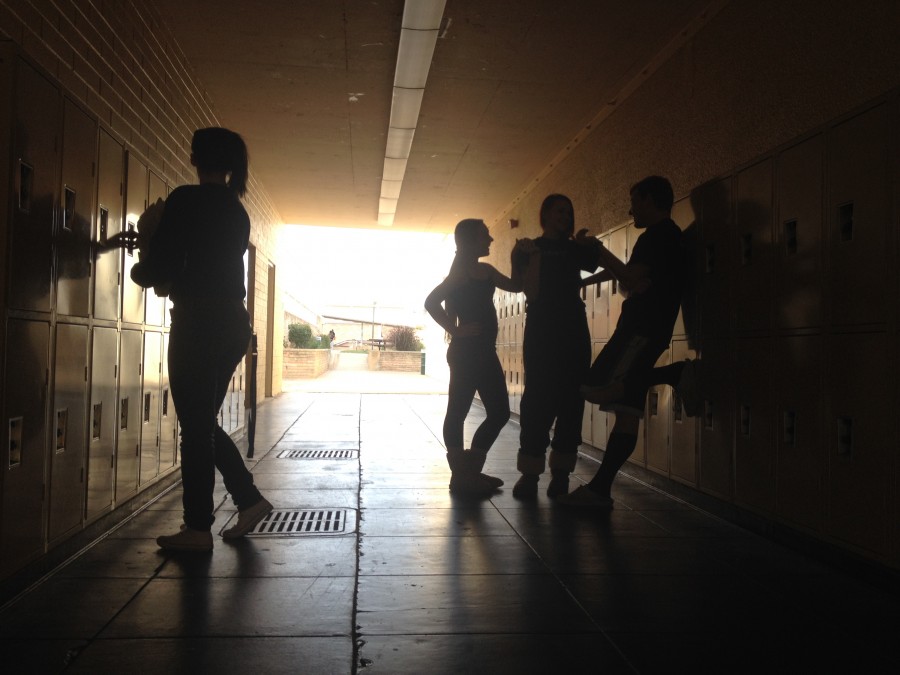Competing for the most social recognition does not ensure everlasting fame.
Merely the idea of standing out in a crowd can make teenagers break a sweat as they imagine themselves suddenly in the midst of a teenage nightmare.
Many high school students feel that if they do not become a part of a socially prominent group of students, or a clique, then they are seen as less relevant than others. TeensHealth.com refers to cliques as tight groups of teenagers that pressure a strict code of membership and ways to act.
“Sometimes it feels like I need to keep up with cliques, because cliques act a certain way. It seems like you have to act their way to get in — you can never be yourself, or you’ll get rejected,” said sophomore Jacey Phipps.
While juggling all different aspects of life, many students feel that being included by their peers is among their top priorities.
“[Belonging to a clique] can be a teenager’s ultimate drive, goal and need. They can be the most important thing in a youngster’s life,” said Patricia Adler, professor of sociology. “It sets the tone of their everyday experience.”
Certain cliques may try to establish that they are better than those on the outside. Senior Logan McPherson wore a look of disgust when she said, “The ‘popular’ clique consists of a lot of people. They have this idea that they are of higher status and closed and exclusive from everyone else.”
In the realm of high school, it is not uncommon for a teenager with a large reputation to develop the image of a local celebrity. Depending on factors such as physical appearance, economic status, extracurricular interests, and academic achievement, some students receive a greater amount of attention from their peers.
“My friend who goes to another school was talking about how there’s this group of girls there, and they literally walk around and everyone bows down to them. That’s disgusting,” said junior Kathleen Perry.
Students do not need to go through high school with their peers worshipping their footsteps during passing period in order to reach their fullest potential in life. Linda Centeno, a clinical psychologist, explained how “all teens (and people) want to be liked and included. But being a part of an ‘elite’ clique in high school does not lead to future gratification.”
Some students who are not idolized by their peers feel the need to travel far out of their comfort zones, acting beyond inappropriate to get their name buzzing around since they “are particularly vulnerable when negative social circumstances occur,” according to Centeno. Students take such extreme routes often when they “are devastated by events that happen in their social world.”
The journey to prove themselves as qualified for what their peers consider worthy of praise can lead students to commit harmful or even illegal actions that are detrimental to themselves and others around them. Some do not even hesitate for a moment, putting their own well-being in jeopardy.
“I think those people are pathetic,” said Perry. “You need to be popular that bad?”
Centeno elaborated and argued that “social status in high school does not determine one’s future. Being included in a teen clique does not guarantee future success. In fact, there are many adults who are extremely successful and satisfied who never were part of a popular group when they were younger.”
Owner of Oakwood Electric in San Carlos, Jeff Santa shared how being on top of the social ladder was never the key to his success.
Thriving in a happy and healthy lifestyle today, Santa said, “Regardless of how high it is teenagers try and climb on the social ladder, or if they even make an attempt to for that matter, the ultimate climb is to somewhere else – the future. I was never the ‘top dog’ at my school and I never competed for social attention from my peers. Instead, I stayed focused on what mattered most to me — my own morals and my own standards — and people liked me. They admired me, but not because I set social records or held wild parties. It was because I respected myself and treated everyone else with that same respect.”
“If you’re known in your group of friends, then you’re relevant,” said Perry. “If you have one true friend, that’s enough.”


